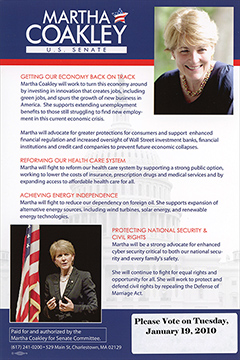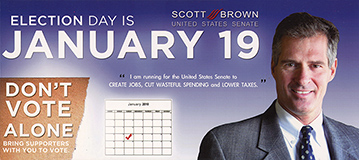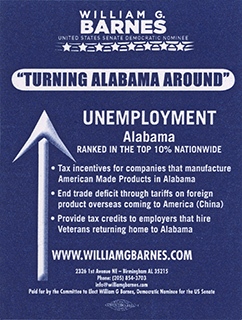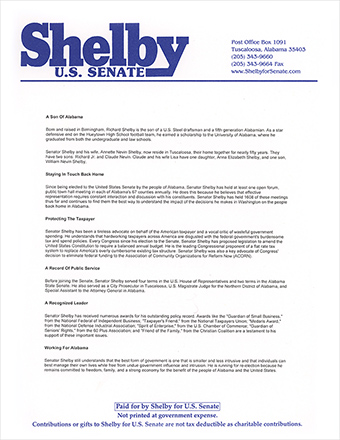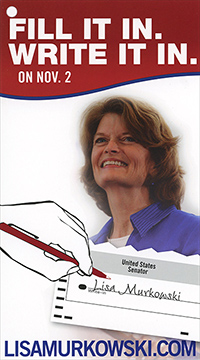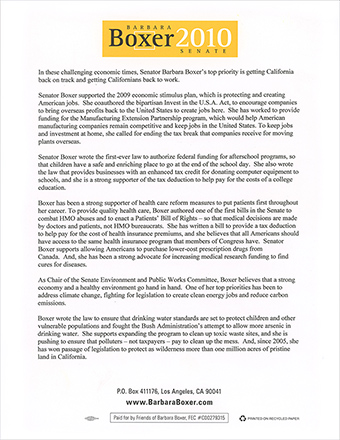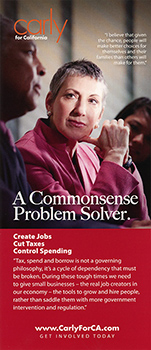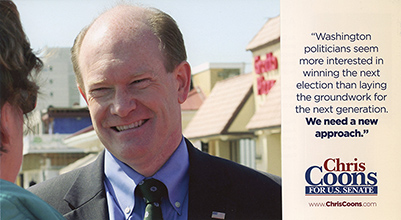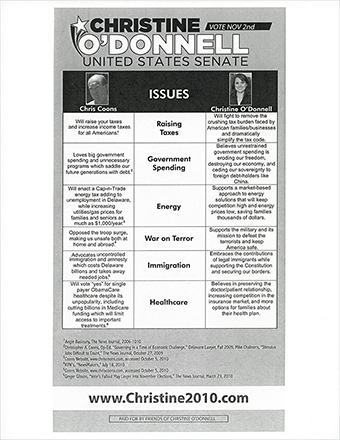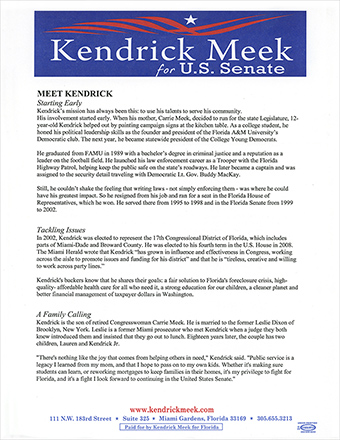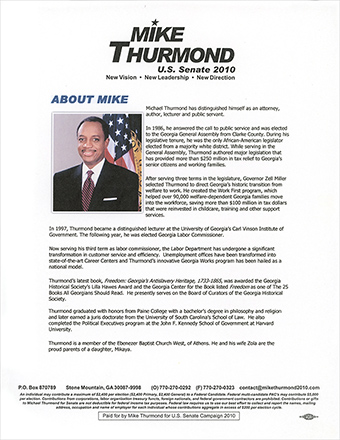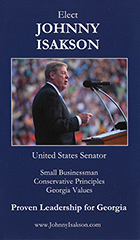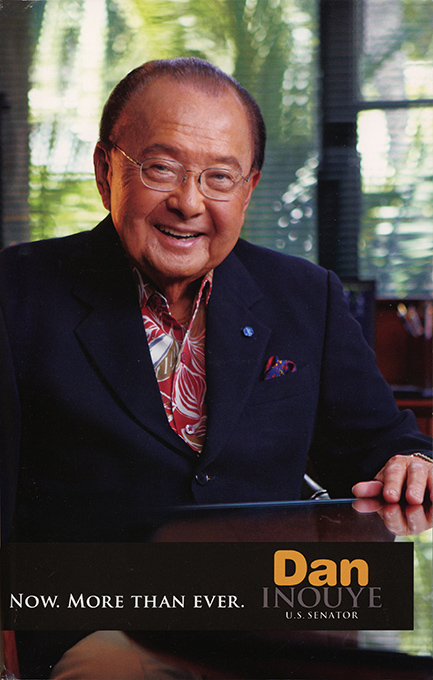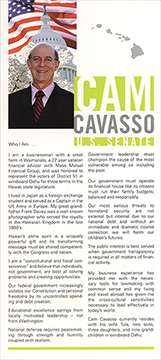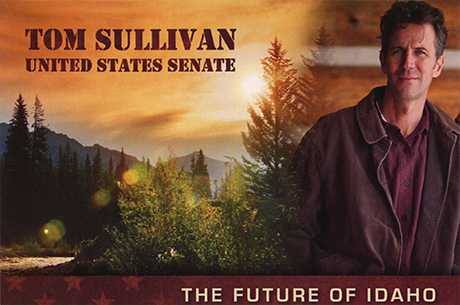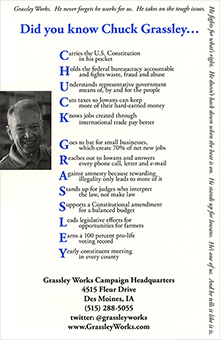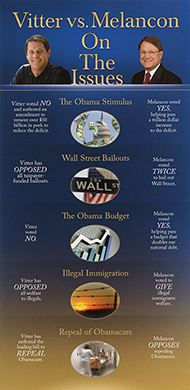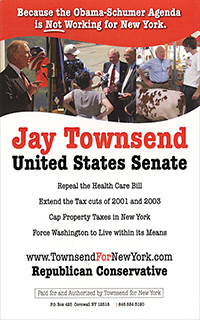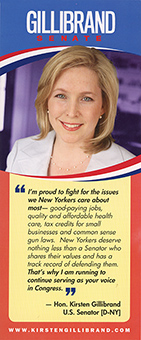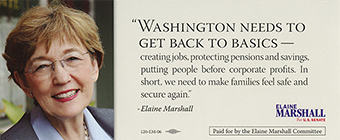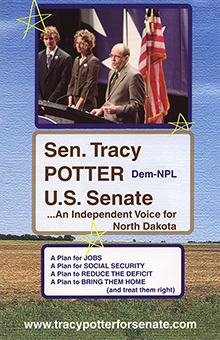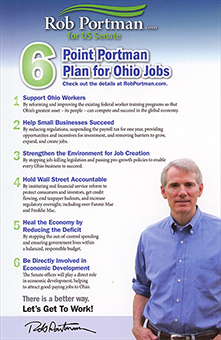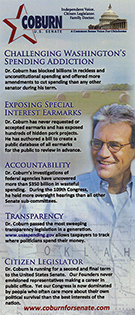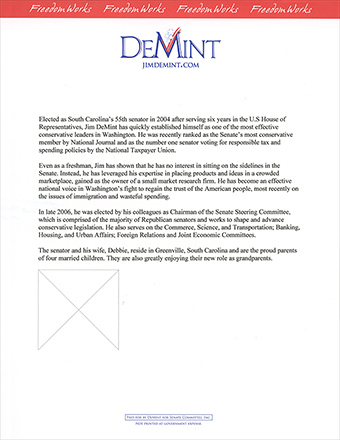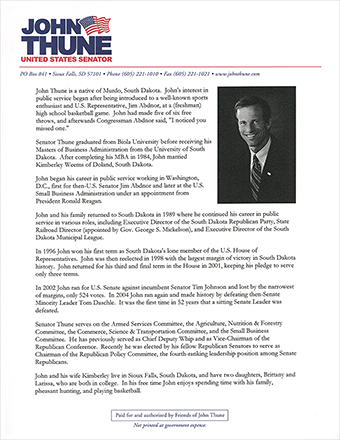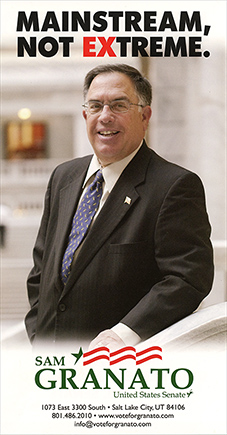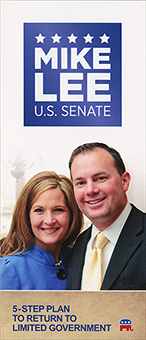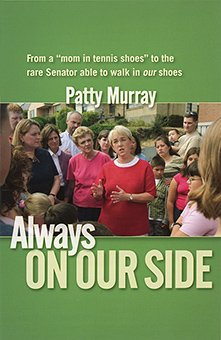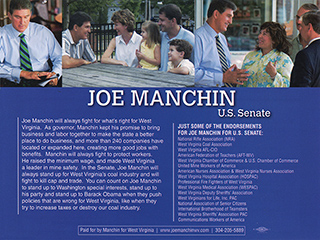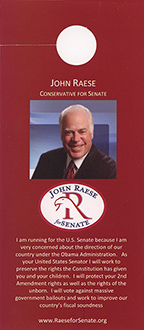- Democracy in Action « Campaign Literature Archive Main Page « 2010 U.S. Senate Races
| Jan. 19
Mass. Special and Nov. 2, 2010 U.S. Senate Races |
|
Jan. 19, 2010 Massachusetts Special Election
______ Nov. 2, 2010 At Stake: 37 Seats Before
Nov. 2: 57D, 41R, 2I.
After
Nov. 2:
51D, 47R, 2I.
______
|
Margin of Victory in Percentage Points (Nov. 2 Races)
| 25.01
+ |
20.01-25.0 |
15.01-20.0 |
10.01-15.0 |
5.01-10.0 |
0-5.0 |
0-5.0 |
5.01-10.0 |
10.01-15.0 |
15.01-20.0 |
20.01-25.0 |
25.01
+ |
| MD 26.44 NYs 27.84 VT 33.41 NY 34.11 HI 53.31 |
DE 16.58 OR 17.98 |
CA 10.01 WV 10.07 CT 11.94 |
NV 5.74 | CO 1.68 WA 4.73 |
IL 1.59* PA 2.02* WI 4.84* |
KY 11.48 NC 11.77 MO 13.60 IN 14.25* |
OH 17.44 LA 18.88 FL 19.19 GA 19.31 |
AR 20.96* NH 23.24 AZ 24.21 |
UT 28.79 AL 30.47 IA 31.05 SC 33.85 KS 43.72 OK 44.50 ID 46.25 ND 53.91* SD 100. |
*Seat changed parties.
| 2010 U.S. SENATE RACE
OVERVIEW [links/graphic] The 2010 mid-term elections were a resounding setback for Democrats, although they did manage to maintain control of the upper chamber. For a start, in the Jan. 19 special election in Massachusetts, state Sen. Scott Brown (R) was elected to fill the seat that had been held by Sen. Edward Kennedy (D). Tea Party-backed candidates achieved significant upsets in primaries around the country, starting with Rand Paul's win in Kentucky, continuing to Sharron Angle in Nevada, Mike Lee in Utah, Ken Buck in Colorado, Joe Miller in Alaska, and finally Christine O'Donnell in Delaware. A relatively high 15 open seats were at stake on November 2. Democrats lost six Senate seats. Balance before Nov. 2: 57 Democrats, 41 Republicans and 2 Independent. 37 seats at stake: 19 held by Democrats, 18 by Republicans. 12 retirements: 6 Democrats, 6 Republicans. D: Chris Dodd (CT), Ted Kaufman (DE), Roland Burris (IL), Evan Bayh (IN), Byron Dorgan (ND), Carte Goodwin (WV). R: George LeMieux (FL), Sam Brownback (KS), Jim Bunning (KY), Kit Bond (MO), Judd Gregg (NH), George Voinovich (OH). 3 defeated in primary: 1 Democrat, 2 Republican*. D: Arlen Specter (PA). R: Bob Bennett (UT), Lisa Murkowski (AK).* 15 open seats: 7 held by Democrats, 8 by Republicans. 23 sitting Senators seeking re-election/election on Nov. 2: 21 re-elected. D: Blanche Lincoln (AR), Russ Feingold (WI). 15 new Senators elected: 3 Democrats, 12 Republicans. D: Richard Blumenthal (CT), Chris Coons (DE), Joe Manchin (WV). R: John Boozman (AR), Mark Kirk (IL), Dan Coats (IN), Sam Brownback (KS), Rand Paul (KY), Roy Blunt (MO), Kelly Ayotte (NH), John Hoeven (ND), Rob Portman (OH), Pat Toomey (PA), Mike Lee (UT), Ron Johnson (WI). 6 seats flipped, Democrat to Republican. Arkansas, Illinois, Indiana, North Dakota, Pennsylvania, Wisconsin. Balance after Nov. 2: 51 Democrats, 47 Democrats and 2 Independent. *Sen. Murkowski (R-AK) lost the primary, but won the general election as a write-in. |
||
|
HIGHLIGHTS*
*Does not include the Jan. 19
Mass. special election. |
||
ADVERTISEMENT

